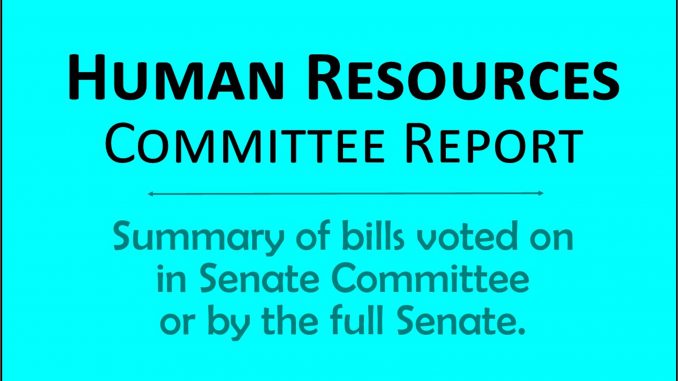
On this page
COMMITTEE ACTION:
HF 2221 – Local Boards of Health membership
HF 2221 – Currently local
Boards of Health are required to have one of the five members be a
physician. The bill allows that position to be filled by a physician,
physician assistant, an Advanced Registered Nurse Practitioner (ARNP), or an
advanced practice registered nurse. The bill also redefines health officer
to reflect the change in membership requirements.
[3/4: short form]
HF 2222 – DHS Study of mental health services
HF 2222 requires DHS to
conduct a statewide study of the current availability of mental health services
in the state. The study will supply data necessary to determine if an 1115
Demonstration Waiver should be requested from the Centers for Medicaid and
Medicare (CMS) that allows Medicaid reimbursement in settings defined as
Institutions for Mental Diseases that have more than 15 beds.
[3/4: short form]
FLOOR ACTION:
SF 2318 – Collaborative Pharmacy Practice
SF
2318 allows a pharmacist to engage in a collaborative pharmacy practice, in
accordance with administrative rules adopted by the Board of Pharmacy and under
a collaborative pharmacy practice agreement, to provide patient care and drug
therapy management services to a patient, including a patient following a
behavioral health diagnosis by a practitioner. The bill also provides that if a
health benefit plan provides for payment or reimbursement for a service that is
within the lawful scope of practice of a practitioner or pharmacist and the
service is provided by a pharmacist pursuant to a collaborative pharmacy
practice agreement, the health carrier may provide payment or reimbursement for
the service. An amendment was adopted to exempt Medicaid from requirements of
this bill.
[3/4: 46-2 (No: Bisignano, Celsi;
Excused: Kraayenbrink, Wahls)]
SF 2346 – Medicaid as third-party payer for primary care agreements
SF 2346, as amended on the floor, requires DHS to
develop a pilot project regarding Direct Primary Care Agreements as authorized
under Code chapter 135N. Such agreements are between a direct provider and a
direct patient, or the direct patient’s representative, in which the direct
provider agrees to provide primary care health services for a specified period
of time to the direct patient for a direct service charge. Code chapter 135N
authorizes a direct provider to accept payment of a direct service charge for a
patient either directly or indirectly from a third party. Under the bill, a
pilot program allows childless adults and pregnant women to enter into the
agreements with the Iowa Medicaid Enterprise as the third-party payor.
[2/27: 31-18,
party-line (Excused: Miller-Meeks)]
